How this aspect of self-awareness is a critical function in leadership
How do you show up?
A few weeks ago we introduced you to the Blue Fjord Leadership System. Over time, I’ll write about each of the skills starting with the foundational skills. Today, is about self-awareness. Self-awareness always comes up as one of the top three skills engineers must have to become managers. Why is self-awareness so important and what does it really mean? Use this guide to understand the habits of self-aware business leaders and how humility makes you stronger.
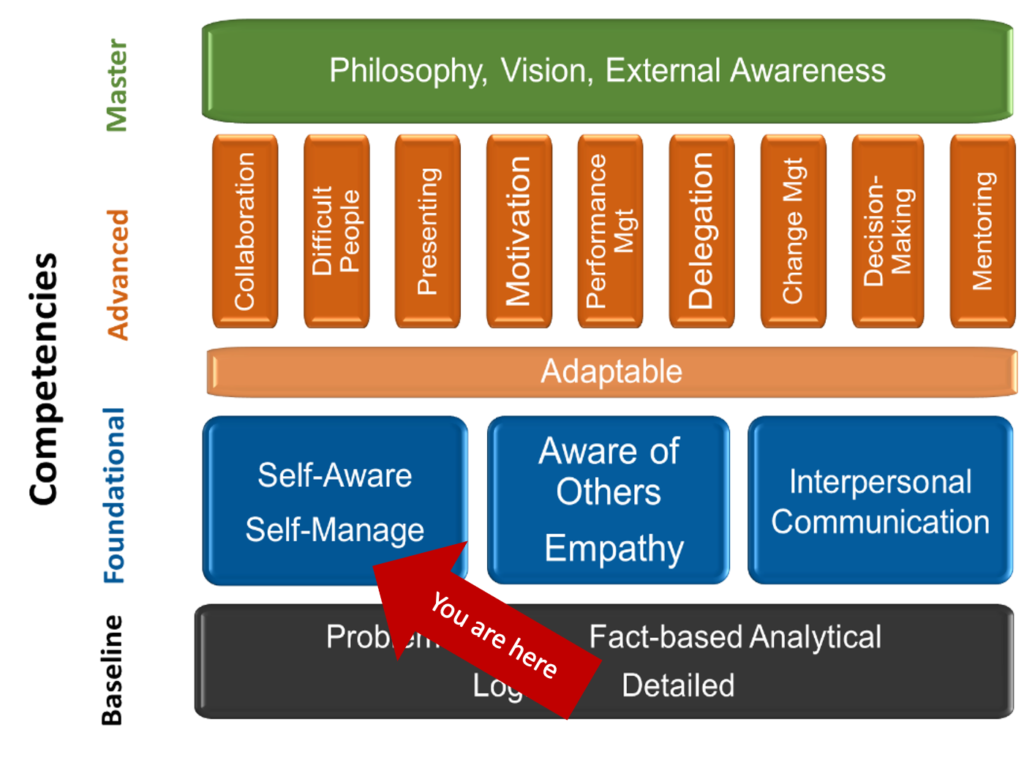
To answer that, I consulted respected leaders. It turns out that there are more dimensions to self-awareness than will fit in this article, so I’ll sprinkle the thoughts from these leaders over several weeks.
Today, let’s talk about the word “humble.” Frankly, I was surprised by the frequency with which this word showed up when professionals are asked the attributes of good managers. But think about it, humble is the opposite of arrogant, egotistical, and condescending. Who wants to work with a manager like that or be a manager like that? If those are examples of traits that aren’t desirable, then what is it about being humble that is desirable?
“Humble” is generally a misunderstood word. Even the definition from Merriam-Webster is a mish-mash of positive and negative traits.
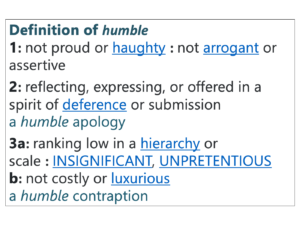
On one hand, “haughty and arrogant” are the opposite of humble and not what we’re aiming for as managers. Neither is “insignificant”. On the other hand, one can be “proud and assertive” while being humble. So, what is it about “humble” that relates to managers and their self-awareness?
When talking with Dan Berler, Battelle’s Transportation Market Leader, about attributes of a good manager and leader, he said:
It’s humility. It’s empathy. It’s understanding people. It is being transparent. It’s being confident while being humble. It’s about being the best human being that you can bring to work.
Now that’s worth shooting for! Dan explained further about what it means to be humble.
It’s knowing who you are. Knowing your strengths, owning your strengths, and owning your weaknesses without shame. This is who I am. This is what I’m good at. This is what I’m not good at. I accept myself as I am. I know what I know. I know I’m good at X, Y and Z and not so good at A, B and C, and that means I need to surround myself with those people who are good at those things. Humility is about knowing who you are and what your skills are and not pretending that they’re better than or worse than.
He makes it sound so simple when it’s not always simple. That’s where self-awareness comes into the picture. That skill that you’re good at is your superpower and it is also a super blind spot – unless you’re self-aware. For example, it is self-awareness that allows a manager to recognize that their superpower of “seeing the big picture” also has a blind spot of skipping over the details. It is with that self-awareness the manager seeks out collaborate with a person who is good at details. Humbleness welcomes that collaboration. Arrogance blocks it. Below are examples of superpowers and their possible blind spots. It takes self-awareness backed by humility to see and embrace both your superpowers and blind spots.
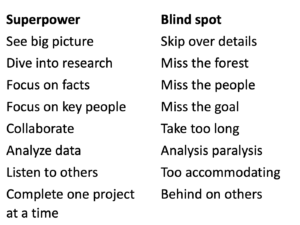
What about you? Are you self-aware enough to recognize your superpowers and see the blind spots? Do you have the humility to fully own those areas at which you excel and fully own those areas where you don’t? Self-awareness rooted in humility are foundational for astute leadership. You want to bring your best human being to work.
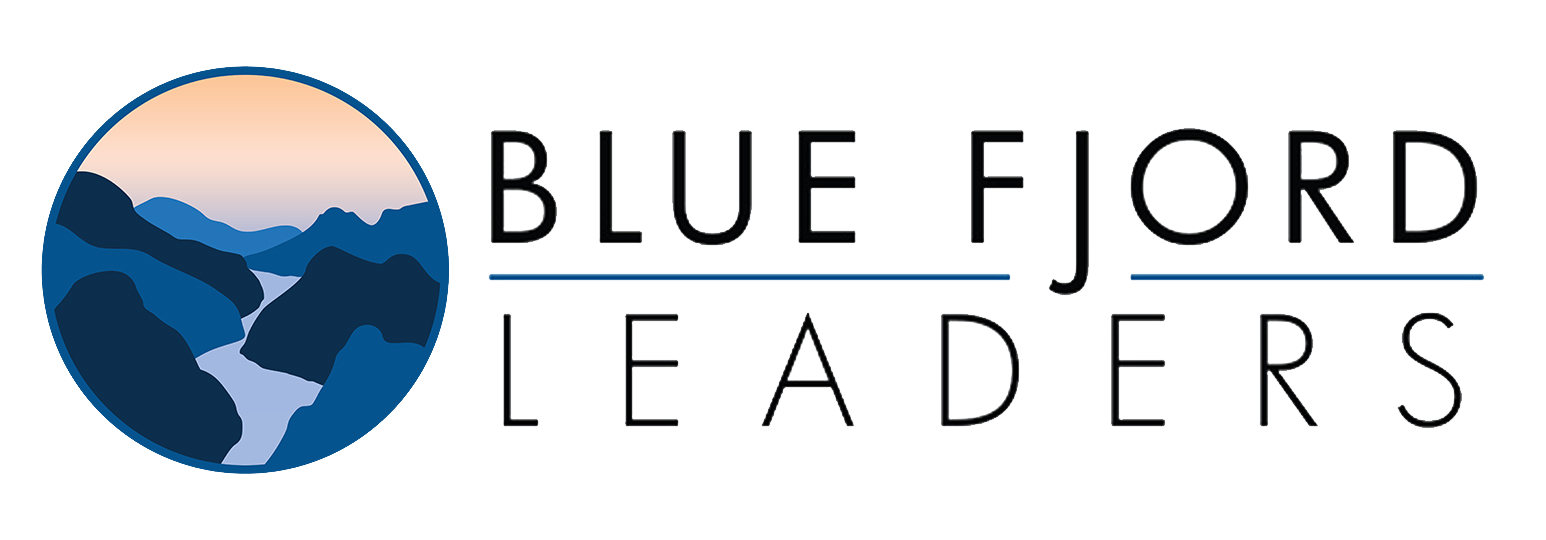


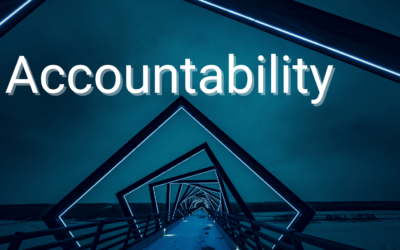

0 Comments